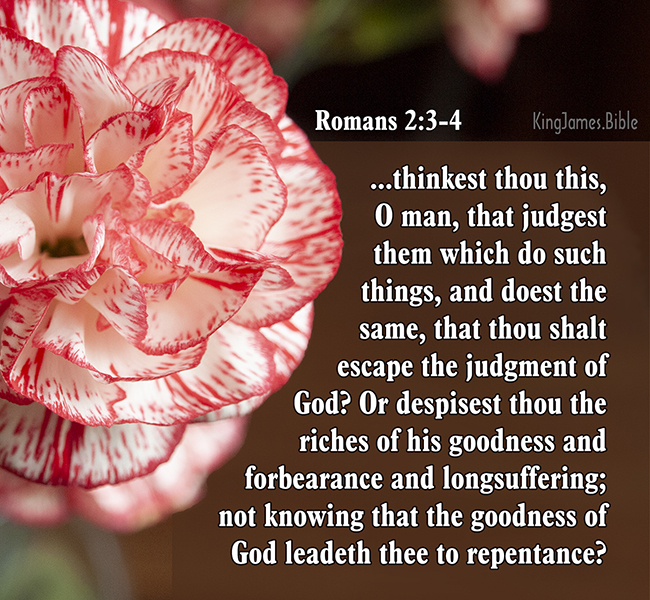|
What Do Calamities Mean?
By Mary E. Stephens
Oct. 2024

When catastrophes happen, humanly we are
tempted to try to interpret them. If there is a extra
destructive hurricane or drought or wildfires or a large
earthquake - whatever the event - we can start to wonder if "God
is trying to tell someone something."
What does the Bible tell us, though?
Just because bad things happen to a
certain area it does not mean that those people were worse
sinners than others. It also does not mean that some unusual
message is being given to us (like who to vote for, or where we
should move).
In Luke 13 we read this:
Luke 13:1-5
There were present at that season some that told him of the
Galilaeans, whose blood Pilate had mingled with their
sacrifices. And Jesus answering said unto them, Suppose ye that
these Galilaeans were sinners above all the Galilaeans, because
they suffered such things? I tell you, Nay: but, except ye
repent, ye shall all likewise perish. Or those eighteen, upon
whom the tower in Siloam fell, and slew them, think ye that they
were sinners above all men that dwelt in Jerusalem? I tell you,
Nay: but, except ye repent, ye shall all likewise perish.
These situations were both rather
significant. In the first one we see that Pilate had mingled the
blood of some Galileans - presumably they were executed for some
reason - with their sacrifices - probably to an idol. For
religious Jews, this would be a terrible sacrilege. Obviously
those who were telling Jesus about it thought that somehow the
people who had been killed, and had their blood used in such a
vile manner, must have been terrible sinners to "deserve" such a
fate. This is a very human response.
Jesus goes on to mention another "news"
item of the day - 18 people who were killed when a tower in
Jerusalem fell on them. That would a scary event, yet He clearly
says that they were not sinners above all that dwelt in
Jerusalem.
This makes interesting food for thought.
We're so quick to jump to conclusions
when calamity strikes, especially when it falls on people whom
we consider extra wicked in some way. On the flip side of that,
it can be confusing when something terrible happens to people we
thought to be "better" in some way.
Did a shooting happen in a sodomite
night club? Well, "we all know why that happened." But, then why
have there also been shootings in Bible believing churches where
God was feared and praised? The answer to that would be
significantly different in the minds of most believers, and yet
from a human perspective, there's very little difference in the
outcomes - souls died and went into eternity. Some were lost,
some were saved.
Was there an earthquake in a city that
is known for its wickedness? Well, that was "well deserved."
Then why do earthquakes happen where people don't even live, or
where there isn't any notable evil?
When a massive hurricane strikes a city
like New Orleans with their reputation for debauchery and sin,
the "knowing" nod their heads wisely and assume they know what
God was doing. But, when a hurricane dumps feet of water in a
conservative, largely God-fearing area they don't have an
explanation - or they blame it on manmade conspiracies.
Well, if we go back to scripture, Jesus
gave us a clear answer to every eventuality of this kind.
Luke 13:5
...except ye repent, ye shall all likewise perish.
 What is God doing when these calamities
happen? He's getting our attention and reminding each of us to
pay attention to ourselves,
and take care of business with Him
now - today. And, all those people who are actually suffering in
those situations, the same offer is open to them as well,
whether it's to salvation or to restoration. It is the goodness
of God that gives us the opportunity to repent, even when the
vehicle that brings it is tragedy. Whether we are personally
involved or not, it is the same offer. What is God doing when these calamities
happen? He's getting our attention and reminding each of us to
pay attention to ourselves,
and take care of business with Him
now - today. And, all those people who are actually suffering in
those situations, the same offer is open to them as well,
whether it's to salvation or to restoration. It is the goodness
of God that gives us the opportunity to repent, even when the
vehicle that brings it is tragedy. Whether we are personally
involved or not, it is the same offer.
It may be that as this world becomes
more obsessed with the toys and distractions and the mad pace of
life that it takes bigger catastrophes to get people's
attention. I think that is quite possible, especially leading up
to the time of great tribulation. It has certainly seemed to
happen before in the history of the world when man was running
amok too wildly. But, the message is still the same - repent.
Turn from your sin and worldliness and follow Christ, whether
it's for the first time in salvation, or as a believer who needs
to get back to the right ways.
1 Peter 1:24-25
For all flesh is
as grass, and all the glory of man as the flower of grass. The
grass withereth, and the flower thereof falleth away: But the
word of the Lord endureth for ever. And this is the word which
by the gospel is preached unto you.
All flesh is as grass. All the glory of
man is as the flower of grass. The flesh will wither and the
glory will fall. Whether that happens through the natural
courses of life - illness, aging - or through fearful tragedies,
we can't know now, but it will inevitably happen. We can't
escape the natural decay of all things.
Ecclesiastes
8:6-8
Because to every purpose there is time and judgment,
therefore the misery of man is
great upon him. For he knoweth not that which shall be: for who
can tell him when it shall be?
There is
no man that hath power over the spirit to retain the spirit;
neither hath he
power in the day of death: and
there is
no discharge in that
war; neither shall wickedness deliver those that are given to
it.
We can't escape the approaching battle
for our last breath. We can't stop time or retain our
own spirits in these fleshly bodies. But, if we go willfully on in wrong ways and
without repenting, we can certainly speed things up and bring a
swifter end to this fragile life - whether at the hand of man,
or by "accidents" or natural disasters. After that we face
eternity, for better or for worse, depending on the choice that
we made here.
Does God judge cities, groups, and
families? We know He does from the many instances in the Old
Testament.
Sodom and Gomorrah, the Great Flood of Noah's day, the nations
of Israel and Judah, David and his family after his sin with Bathsheba
- these are a few examples. But, the point in all of those is
that God clearly explained that each of those tragedies happened
for a specific reason. They are also examples to us (1
Cor. 10) so that we learn not to fall into similar sins.
But, today, in th another why they happen (regardless of what
the false prophets say). We don't have to feel like there is no
answer, though. According to Jesus, it is simply this: repent.
2
Corinthians 7:9-11
Now I rejoice, not that ye were made
sorry, but that ye sorrowed to repentance: for ye were made
sorry after a godly manner, that ye might receive damage by us
in nothing. For godly sorrow worketh
repentance to salvation not to be repented of: but the
sorrow of the world worketh death. For behold this selfsame
thing, that ye sorrowed after a godly sort, what carefulness it
wrought in you, yea, what
clearing of yourselves, yea,
what indignation, yea,
what
fear, yea, what
vehement desire, yea, what
zeal, yea, what
revenge! In all things
ye have approved yourselves to be clear in this matter.
At the end of the day, we should be
found with more zeal for God and having taken revenge on
our own sinfulness. The
repentance that counts is the repentance that brings changed
lives that glorify God. The things He allows to drive us to that
repentance are evidence of His goodness. Is that hard to
understand? Yes. But, it shows us more clearly how important
repentance is to Him. It shows us how much He desires people -
us - to be saved; to be redeemed, purified, and then to be
zealous for Him.
Titus 2:11-14
For the grace of God that bringeth salvation hath appeared to
all men, Teaching us that, denying ungodliness and worldly
lusts, we should live soberly, righteously, and godly, in this
present world; Looking for that blessed hope, and the glorious
appearing of the great God and our Saviour Jesus Christ; Who
gave himself for us, that he might redeem us from all iniquity,
and purify unto himself a peculiar people, zealous of good
works.
 


background and graphics by Mary Stephens
vintage graphic: unknown source
|